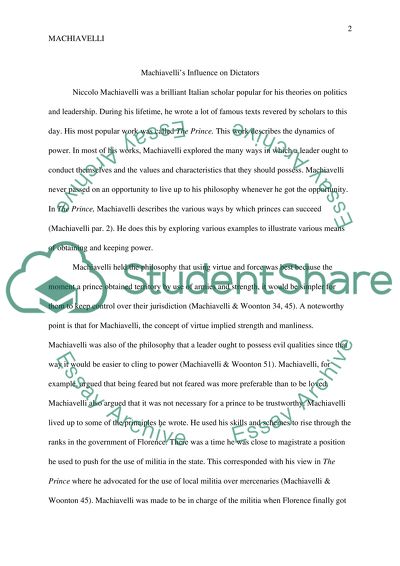Cite this document
(“Can Machiavelli's theories be used to justify the actions of Marx, Essay”, n.d.)
Can Machiavelli's theories be used to justify the actions of Marx, Essay. Retrieved from https://studentshare.org/english/1641317-can-machiavellis-theories-be-used-to-justify-the-actions-of-marx-lenin-stalin-putin-totalitarian-actions
Can Machiavelli's theories be used to justify the actions of Marx, Essay. Retrieved from https://studentshare.org/english/1641317-can-machiavellis-theories-be-used-to-justify-the-actions-of-marx-lenin-stalin-putin-totalitarian-actions
(Can Machiavelli'S Theories Be Used to Justify the Actions of Marx, Essay)
Can Machiavelli'S Theories Be Used to Justify the Actions of Marx, Essay. https://studentshare.org/english/1641317-can-machiavellis-theories-be-used-to-justify-the-actions-of-marx-lenin-stalin-putin-totalitarian-actions.
Can Machiavelli'S Theories Be Used to Justify the Actions of Marx, Essay. https://studentshare.org/english/1641317-can-machiavellis-theories-be-used-to-justify-the-actions-of-marx-lenin-stalin-putin-totalitarian-actions.
“Can Machiavelli'S Theories Be Used to Justify the Actions of Marx, Essay”, n.d. https://studentshare.org/english/1641317-can-machiavellis-theories-be-used-to-justify-the-actions-of-marx-lenin-stalin-putin-totalitarian-actions.


